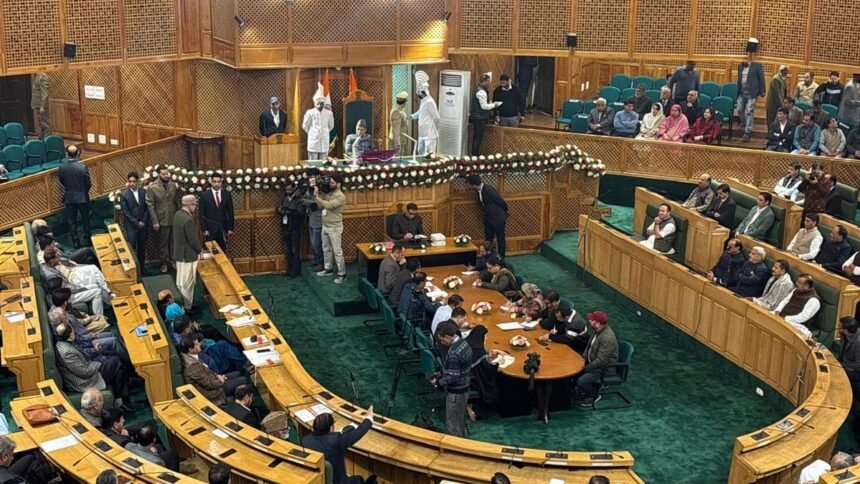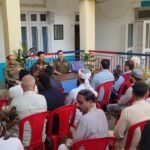The Union Ministry of Home Affairs has informed the Jammu and Kashmir High Court that the Lieutenant Governor of Jammu and Kashmir can nominate five members to the J&K Assembly without the “aid and advice” of the elected government. According to a report in The Hindu, the Ministry stated that these nominations fall “outside the realm of the business of the elected government of J&K.”
The five nominees include three members — two Kashmiri migrants (one of whom is a woman) and one member from the Pakistan-occupied J&K (PoJK) community — along with two additional women if the Lieutenant Governor believes women are not adequately represented in the Assembly.
The Ministry of Home Affairs’ affidavit in court stated that the nominations were “outside the realm of the business of the elected government of J&K.” It added, “Once Parliament recognizes the Lieutenant Governor as a distinct authority from the Union Territory government under Parliamentary enactment, it follows that any power conferred on the Lieutenant Governor must be exercised as a statutory function, not as an extension of his duties as head of the UT government…. There can be no doubt that it is the Lieutenant Governor who must exercise this statutory duty at his discretion, as a statutory functionary and not as an extension of the government, thus without aid and advice.”
The amendment was challenged through a public interest litigation (PIL) filed by Congress leader Ravinder Kumar Sharma. While hearing the petition, the High Court on October 21, 2024, sought a reply from the Union government on the changes made to the 2019 Act.
The court questioned, “Whether Sections 15, 15-A, and 15-B of the J&K Reorganisation Act, 2019, which provide for nominating members to the Legislative Assembly beyond the sanctioned strength and have the potential to alter the majority status of the government, are ultra vires the Constitution and violate its basic structure?”
The 2023 amendment increased the total number of seats to 119 from the previous 114, keeping 24 seats vacant for the PoJK areas.
In the affidavit filed on July 24, the MHA stated that “the present writ petition has become academic as the scenario contemplated did not arise.”
It further said, “The interpretation of Section 12 of the Union Territories Act, 1963, would similarly apply to Sections 15, 15A, and 15B of the J&K Reorganisation Act. Accordingly, the nominations made would be without the aid and advice of the Council of Ministers, being outside the realm of the elected government of J&K.”
The MHA argued that the petitioner failed to substantiate the claim that nominations under the J&K Reorganisation Act, 2019 exceed the sanctioned strength of the Legislative Assembly, whereas those under the Government of Union Territories Act, 1963 do not. “The petitioner has not provided any sound legal basis or statutory interpretation to support this distinction, and such submissions are misconceived and legally unsustainable,” the affidavit said.
It clarified that Section 14(3) of the 2019 Act “does not provide the total strength of the Legislative Assembly but only the number of directly elected members.”
“The sanctioned strength of the Assembly, therefore, is not 114, but 114 plus all members nominated under Sections 15, 15A, and 15B,” the MHA added.
It also noted that if the petitioner’s flawed interpretation were applied to the Union Territory of Puducherry, the total strength of the Puducherry Assembly under Section 3(2) of the 1963 Act would be 30, whereas it is actually 33 — 30 elected plus 3 nominated members.
The case is scheduled for hearing on August 14.
The election to the 90-seat J&K Assembly was held in September-October 2024, with results declared on October 8, where the National Conference-Congress alliance secured a sweeping victory. (Agencies)









